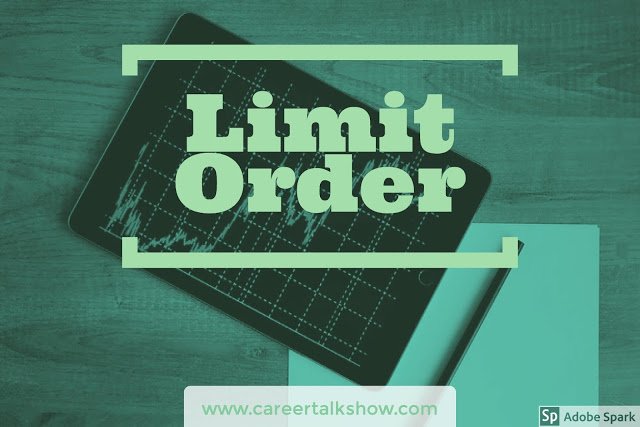A Limit Order is an Order placed in the Market to Buy or Sell a Stock at a Specified Price which is set by the Investor. The Price which is specified by the Investor to Buy or Sell a Stock is called as Limit Price.
The Execution of a Limit Order is not guaranteed because unless the Market Price reaches the Limit Price set by the Investor, the order will not be executed.
A Limit Order could be a Buy Order or a Sell Order.

In a Buy Limit Order, if the Investor sets the Limit Price at $25, it means that the Order will not be executed in the Market until the Market Price becomes $25. The Buy Order will be executed at either $25 or a Lesser Price.
In the case of a Sell Limit Order, if the Investor sets the Limit Price at $25, it means that the Order will not be executed in the Market until the Market Price becomes $25. The Sell Order will be executed at either $25 or a Higher Price.
Buy Limit Order
Order Type -> BUY
Limit Price -> $25
Order Will Execute if -> Market Price is LESS THAN OR EQUALS $25
Sell Limit Order
Order Type -> SELL
Limit Price -> $25
Order Will Execute if -> Market Price is GREATER THAN OR EQUALS $25
Hi! I am a robot. I just upvoted you! I found similar content that readers might be interested in:
http://www.investopedia.com/terms/l/limitorder.asp